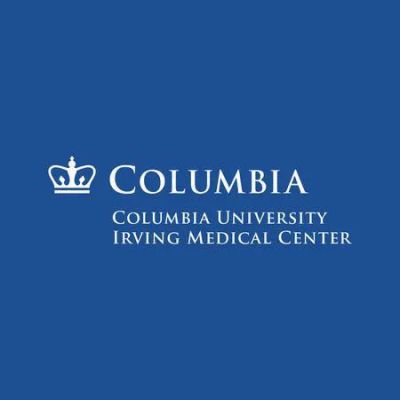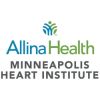Understanding Medications Prescribed for Heart Disease
Heart disease is one of the leading causes of death in the United States. With millions of Americans affected, managing heart disease is essential for maintaining long-term health. The treatment of heart disease often involves a combination of lifestyle changes, such as diet and exercise, as well as prescribed medications. But what are the most commonly prescribed medications for heart disease, and how do they work? In this article, we will explore the most frequently prescribed medications used to manage heart disease, offering you a comprehensive guide to understanding their roles and effects.

1. Beta-Blockers: A Crucial Medication for Heart Disease
Beta-blockers are a class of medications commonly prescribed for people with heart disease. They work by blocking the effects of adrenaline on the heart. This helps slow the heart rate, reduce blood pressure, and decrease the heart’s demand for oxygen. Beta-blockers are often prescribed for patients with conditions like high blood pressure (hypertension), heart failure, and arrhythmias (irregular heart rhythms).
One of the most popular beta-blockers prescribed for heart disease is metoprolol. This medication can be used to treat both high blood pressure and heart failure. Another commonly prescribed beta-blocker is atenolol, which helps reduce the risk of heart attacks and stroke by lowering blood pressure and improving blood flow.
Patients who take beta-blockers often experience a reduced risk of heart attack and improved heart function over time. However, it is important to note that beta-blockers may cause side effects like fatigue, dizziness, or cold hands and feet. As with any medication, it’s essential to follow your healthcare provider’s instructions to minimize these effects.
Atlanta Heart Specialists
atlanta heart specialists
4375 Johns Creek Pkwy #350, Suwanee, GA 30024, USA

2. Statins: Lowering Cholesterol for Heart Health
Statins are another commonly prescribed class of medications for heart disease. These drugs work by lowering cholesterol levels in the blood, specifically low-density lipoprotein (LDL), often referred to as "bad" cholesterol. By reducing LDL cholesterol, statins can help prevent the formation of plaque in the arteries, which can lead to heart attacks, strokes, and other cardiovascular problems.
Popular statins include atorvastatin (Lipitor) and simvastatin (Zocor). These medications are typically prescribed to patients with high cholesterol, a history of heart disease, or those at high risk for developing heart problems. Statins have been proven to reduce the risk of heart attacks and strokes, and they can significantly improve a patient’s long-term heart health.
Like beta-blockers, statins can have side effects, including muscle pain, digestive issues, and liver problems. Patients taking statins should be monitored by their healthcare provider to ensure the medication is working effectively and that side effects are kept to a minimum.
3. ACE Inhibitors: Protecting the Heart and Kidneys
Angiotensin-converting enzyme (ACE) inhibitors are a key medication for managing heart disease, especially for those with heart failure or high blood pressure. These medications work by relaxing blood vessels, making it easier for the heart to pump blood. ACE inhibitors also help prevent kidney damage, which is particularly important for patients with diabetes or hypertension.
Enalapril and lisinopril are two common ACE inhibitors prescribed to people with heart disease. These drugs have been shown to reduce the risk of death and hospitalization in patients with heart failure. ACE inhibitors are also used to manage high blood pressure and prevent complications related to diabetes.
While ACE inhibitors are highly effective, they can cause side effects such as a persistent dry cough, elevated potassium levels, and dizziness. Patients should communicate any side effects to their healthcare provider to adjust the dosage or switch to a different medication if necessary.
4. Diuretics: Helping the Heart Pump More Effectively
Diuretics, also known as "water pills," are often prescribed to patients with heart disease to help reduce fluid buildup in the body. This fluid retention can be a problem for people with heart failure, as it makes it more difficult for the heart to pump blood efficiently. Diuretics help remove excess fluid through increased urination, relieving the heart’s workload and improving overall circulation.
Furosemide (Lasix) and hydrochlorothiazide are commonly prescribed diuretics for heart disease patients. These medications are frequently used to treat heart failure and high blood pressure. By reducing fluid buildup, diuretics can alleviate symptoms like swelling and shortness of breath, significantly improving quality of life for heart disease patients.
However, diuretics can cause dehydration, low potassium levels, and low blood pressure. It’s crucial for patients taking diuretics to stay hydrated and maintain regular check-ups with their healthcare provider to monitor electrolyte levels and ensure proper kidney function.
5. Antiplatelet Medications: Preventing Blood Clots
Antiplatelet medications, such as aspirin and clopidogrel (Plavix), are commonly prescribed to reduce the risk of blood clots, which can lead to heart attacks and strokes. These medications work by preventing platelets in the blood from clumping together, which is a key step in clot formation.
Aspirin is often recommended for people who have already experienced a heart attack or stroke to help prevent future events. Clopidogrel is used for patients who may have a higher risk of clot formation, such as those with coronary artery disease or those who have had stents placed in their arteries. In some cases, a healthcare provider may recommend a combination of aspirin and another antiplatelet medication for added protection against blood clots.
While antiplatelet medications are effective at preventing clots, they can increase the risk of bleeding. Patients taking these medications should be cautious about cuts or injuries, and they should avoid medications that can further increase bleeding risk, such as certain over-the-counter pain relievers.
6. Blood Pressure Medications: Controlling Hypertension
Hypertension, or high blood pressure, is a major risk factor for heart disease. Medications that lower blood pressure are essential for managing heart disease and reducing the risk of heart attack, stroke, and kidney damage. Common classes of blood pressure medications include calcium channel blockers, angiotensin receptor blockers (ARBs), and diuretics.
Medications like amlodipine (Norvasc) and losartan (Cozaar) are frequently prescribed to manage high blood pressure. These drugs work by relaxing blood vessels and improving blood flow, reducing the strain on the heart. Regular monitoring of blood pressure is important for ensuring that the medication is effectively controlling hypertension and preventing complications.
As with other heart disease medications, blood pressure medications may cause side effects, such as dizziness, fatigue, and swelling. It’s important to follow the healthcare provider’s instructions and attend regular follow-up appointments to ensure the best results.
7. Antiarrhythmic Medications: Treating Irregular Heart Rhythms
For patients with arrhythmias, or irregular heart rhythms, antiarrhythmic medications play a crucial role in controlling these disturbances and maintaining a normal heart rhythm. Medications like amiodarone and flecainide are used to prevent or treat irregular heart rhythms, which can be dangerous if left unmanaged.
Amiodarone, for example, is often prescribed for patients with serious arrhythmias, including atrial fibrillation or ventricular arrhythmias. While effective, antiarrhythmic medications can have significant side effects, including thyroid and lung problems, so patients must be carefully monitored during treatment.
These medications work by regulating the electrical signals in the heart, ensuring that the heart beats in a regular and coordinated pattern. It’s crucial to follow the prescribed dosage and consult with your healthcare provider regularly to avoid any complications.






















Deborah Heart and Lung Center
deborah heart and lung center
200 Trenton Rd, Browns Mills, NJ 08015, USA